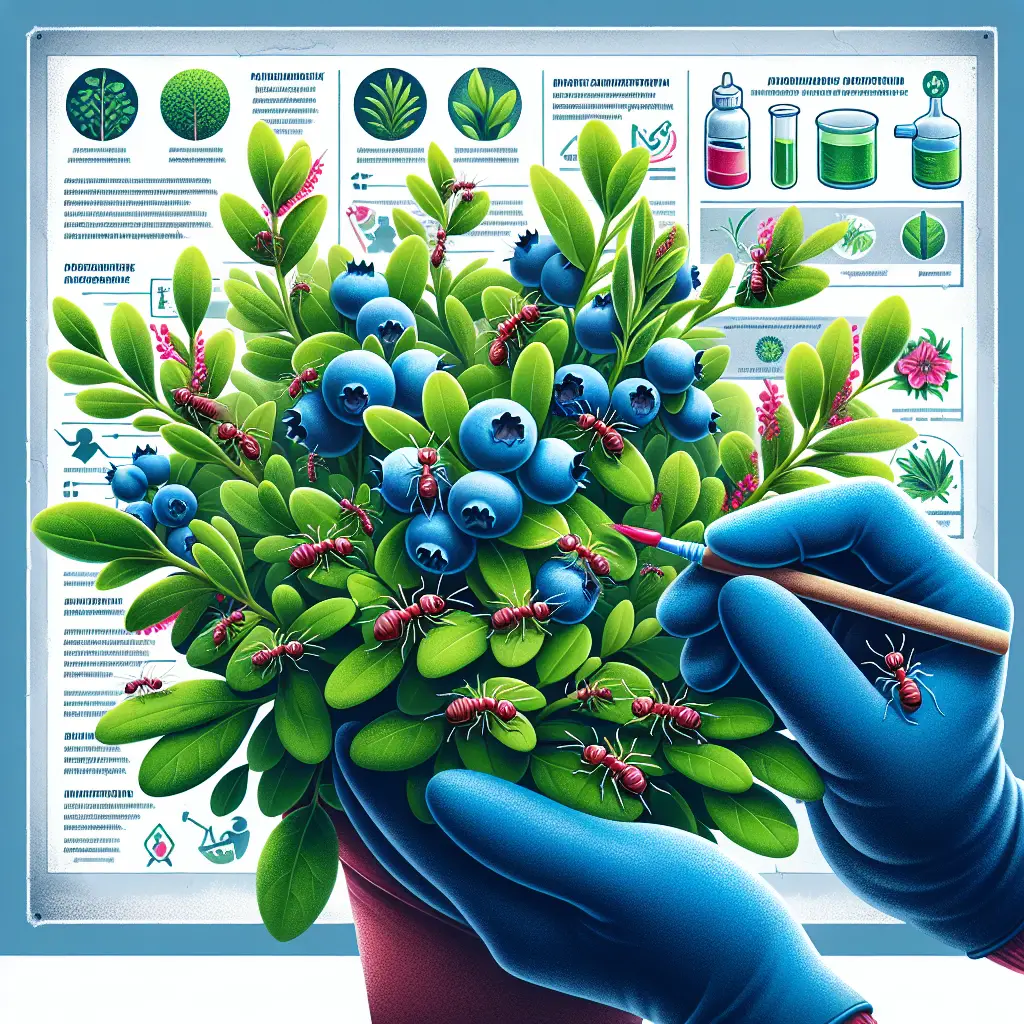Title: How to Get Rid of Ants on Blueberry Plants
Introduction:
Blueberry bushes are a delightful addition to any garden, offering not only succulent fruits but also serving as an ornamental feature with their blossoms and fall foliage. However, the sweet aroma of ripening blueberries can attract various garden pests, notably ants. These insects are not only a nuisance but can also pave the way for other pests, such as aphids, to harm your plants. If you’re facing an ant infestation on your blueberry bushes, fear not. In this article, we’ll explore effective methods to banish these tiny invaders and ensure the protection of your precious blueberries.
Understanding Ant Behavior:
Before diving into eradication methods, it’s important to understand why ants are attracted to your blueberry plants. Often, ants are found on plants that host aphids or other honeydew-producing insects because they feed on the sugary excretion of these pests. Managing the root cause of the ant attraction is crucial for long-term control.
Natural and Chemical-Free Solutions:
- Keep Your Garden Clean:
Start by removing any debris or fallen fruit that might be attracting the ants. Keep the area surrounding your blueberry bushes tidy and well-maintained to discourage ant activity. -
Water Jetting:
A strong stream of water from a hose can dislodge ant colonies and send them packing. Aim the water directly at the base of the plant and surrounding soil where ants tend to build their nests. -
Use Diatomaceous Earth:
Diatomaceous earth is a natural powder that can be sprinkled around the base of the blueberry plants. This material is harmless to plants but lethal to ants as it dehydrates and kills them upon contact. Gardeners often recommend food-grade diatomaceous earth, which is safe around kids and pets. Check out this option from Safer Brand. -
Citrus Peelings:
Ants dislike the scent of citrus. Scatter citrus peelings around your blueberry bushes to deter them. As a bonus, the peels will decompose and nourish your plants.
Chemical Ant Control:
If natural remedies aren’t cutting it, you may consider chemical options. However, always select insecticides that are safe for use on food crops.
- Bait Stations:
Ant baits can be effective as ants carry the poison back to their colonies, thus targeting the source. Terro Outdoor Liquid Ant Baits are designed for outdoor use and can withstand the elements. Here’s a link to purchase Terro Outdoor Liquid Ant Bait Stakes. -
Insecticidal Soap:
Insecticidal soaps, like those from Safer Soap, are safe for use on blueberry plants and can kill ants on contact. Be sure to follow the application instructions carefully.
Preventative Measures:
Taking proactive steps can reduce the likelihood of ants targeting your blueberry plants in the future:
- Encourage Natural Predators:
Beneficial insects, such as ladybugs and lacewings, feed on aphids and other pests that attract ants. Encouraging these natural predators helps maintain a balanced ecosystem in your garden. -
Barrier Methods:
Apply a barrier, such as Tanglefoot Pest Barrier, around the stems of your blueberry plants. This sticky substance can prevent ants from climbing up to the fruits. -
Plant Companion Plants:
Certain plants, like mint or marigolds, are known for their ability to repel ants. Consider planting these near your blueberry bushes as a natural deterrent.
Conclusion:
Ants on your blueberry plants can be more than an inconvenience; they can signal an underlying pest issue that needs to be addressed. Try the natural solutions provided and escalate to chemical controls if needed, all while keeping the safety of your harvest in mind. With patience and the right tactics, you can enjoy a bountiful and ant-free blueberry harvest.
Remember to balance immediate ant control with long-term prevention. A healthy, diverse garden ecosystem is your best defense against pest invasions. Now that you’re equipped with the knowledge to tackle an ant problem, you can ensure your blueberry plants thrive and continue to be a rewarding element of your garden.
Please share your experiences and suggestions in the comments below. We’d love to hear what worked for you and any additional tips you may have for fellow garden enthusiasts.
References:
-
“Ants on Plants: A Potentially Serious Problem.” Colorado State University Extension. Link to the source.
-
“Managing Pests in Gardens: Fruit — Cultural Tips, Insects, and Mites.” University of California Statewide Integrated Pest Management Program. Link to the source.
-
“Safer® Brand Diatomaceous Earth – Bed Bug, Ant and Crawling Insect Killer.” Safer Brand. Link to the source.
-
“Terro Outdoor Liquid Ant Baits.” Terro. Link to the source.

